Intelligentsia’s Geoff Watts
Our interview with a veteran green coffee buyer on building relationships with sustainable farmers

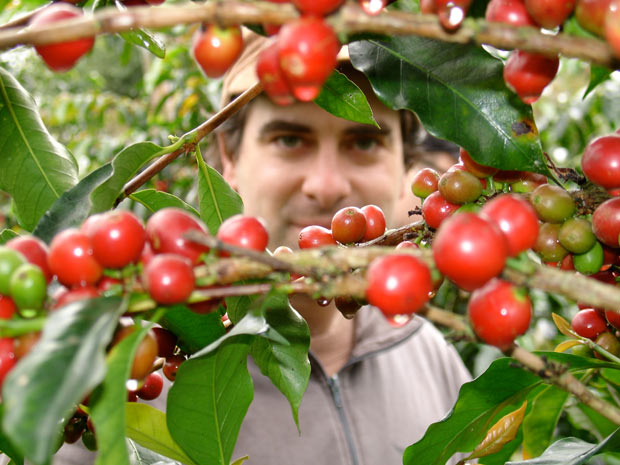
As the vice president of coffee for Intelligentsia and a green coffee buyer, Geoff Watts travels the world searching for the best beans, working to build relationships with the farmers that have helped make Intelligentsia a leader in the specialty coffee industry. We recently met with Watts in Los Angeles during their three-day Extraordinary Coffee Workshop (ECW), where we talked to the coffee guru about his tenure with the brand and the journey to select the best beans from around the world.
When did your work with coffee turn into a career?
In 1997, I came to a crossroads. Part of me wanted to go back to Berkeley to pursue a graduate degree in music. I was playing with two bands at the time and was working at Intelligentsia as a roaster. The bug was already deep in me because when I started as a barista, I learned how you have the ability to really change the way coffee tastes by the way you prepare it. Then I started roasting and entered a world of chemistry, a bridging of art and science. It’s an endless learning experience. Coffee just won out. It was impossible to say no.
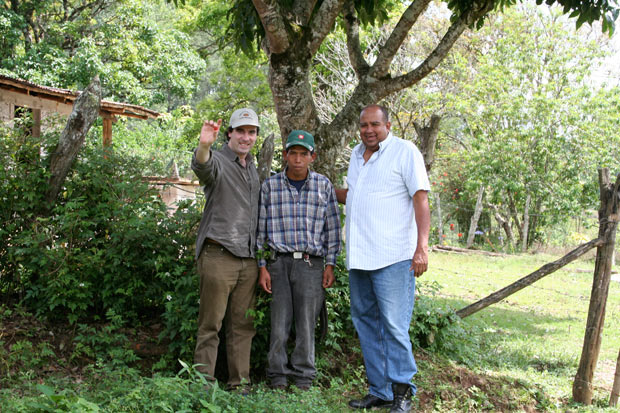
Where was the first country you visited to see a coffee field?
The first coffee field was in Guatemala. That changed everything. After learning to roast and prepare coffees, I learned we are still limited by what is locked inside that green coffee bean. Going to Guatemala I discovered there were thousands of farms, little microclimates, and that even on a single farm there was a range of tastes and flavors being created there. I learned about how the coffee is processed and picked and that even the week’s weather affects the beans. That was the moment when I realized how limited our vision had been in the beginning—when I would just pick from thirty bags of beans sent to me in Chicago. After spending just a week on farms in Guatemala, we discovered there was an opportunity to bring coffees into the market that we had never had access to before. We could shorten the route between the farm and the consumer.
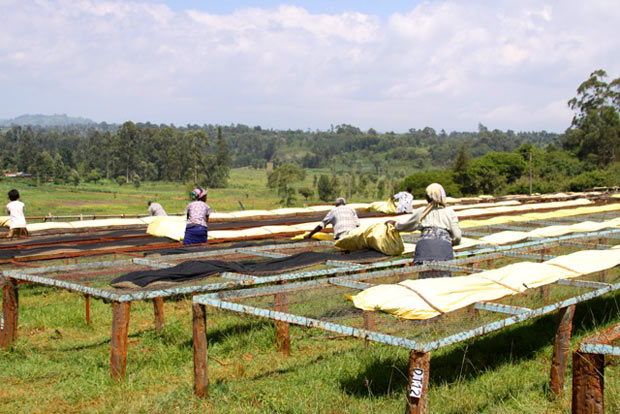
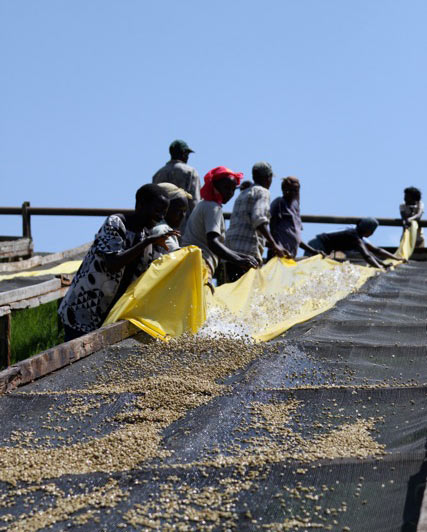
How did you originally build relationships when you were the only buyer covering large territories in Mexico, Central and South America?
Part of it was abandoning the rest of my life and living out of a suitcase for about six years from 2003-2009. In 2002 we were just working with Mexico, Guatemala and Honduras. Then we added Nicaragua, Costa Rica, Panama, Colombia, Bolivia, and Peru. I would try to build my schedule around the harvest. Every year in January, February, and March I would be in Central America, then May, June, and July in Colombia and other parts of South America, with a few trips to East Africa thrown in there. We were really able to connect with some incredible people. In the beginning there was a lot of physical work to get things set up at the farms and work with the producers.
How did you express what you were looking for in a specialty coffee?
We did a project four years ago in Rwanda in conjunction with an NGO. The farmers there generally treated coffee as a cash crop and did not have a culture of consuming it. We’d learned so many times over the years, that if you are not consuming the product that you are creating, it is a lot harder to be motivated to pursue better quality. We started the program in Rwanda to teach coffee farmers how to prepare and consume their own coffee so they could be their own quality control. We built several hundred kits with little pans, a mortar and pestle to grind the beans, a sample of how the coffee should look when it was ready to brew, and an illustrated manual for coffee roasting in the local language. Then we did trainings in small villages. We taught the farmers to roast coffee over a fire. You can roast decently in a pan. It’s not ideal, but you get surprisingly tasty results. For many of them it was the first time they had coffee, even though it was growing in their backyard for years. Others had tasted coffee, but not their own. It was a moment of revelation for them. Now when a buyer comes along and is talking to them about the coffee quality, they can actually relate. There is a common language now.
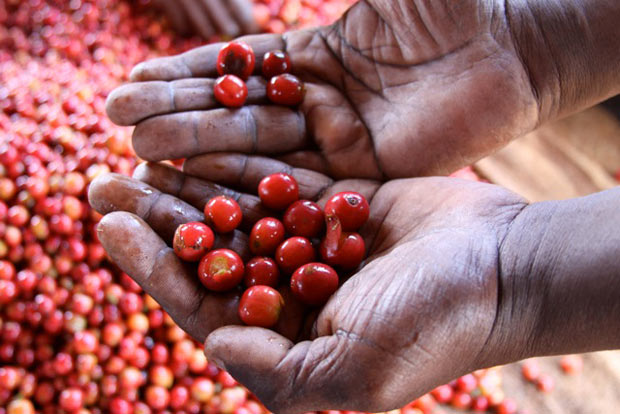
Many of Intelligentsia’s baristas say their favorite coffees are from Kenya. What is so special about Kenyan coffee?
The Kenyan farmers have figured something out. Their coffees are fascinating and complex. In 2004 I went to Kenya for the first time with a few other roasters. We asked, “What’s the secret? Is it the soil? The variety?” Ultimately it’s a mix of things. Soil has something to do with it, but I am convinced it’s the variety. We have seen that with the famous Panama Geisha Esmeralda. It’s a coffee grown in Panama that is grown with seeds taken from Ethiopia in the 1930s. Those seeds carried their taste with them. That is one of the most powerful examples of what determines what the coffee’s real flavor character is going to be. Its potential is genetic.
The Kenyans use a cultivar seed called SL-28. The rest of the coffee world owes them a big debt of gratitude to the genius who cultivated that seed. The other thing is their coffee never gets exposed to high temperatures or humidity until it is on its way out of the port. Most of the mills in Northern Kenya are in areas that are cool. In many other situations coffee that is grown in the mountains has to come down to warmer dryer areas to get milled, bagged, and processed. It suffers from that change in temperature. But in Kenya and Ethiopia it stays at the perfect temperature and humidity and arrives with intensity and vibrancy.
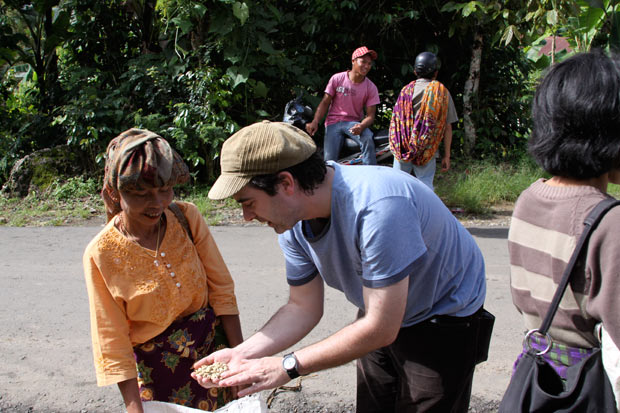
Several people from Kenya participated in the ECW, including Charles Muriuki. Tell us about him.
Charles Muriuki is one of the most impressive and admirable guys I have met in coffee. He runs a union of co-ops called Gikanda and works with thousands of individual farmers. Muriuki is like their great granddad. His job is to help them access better incomes. He’s made all the right decisions. I see so many co-ops fail from bad leadership. You need the right people to keep it on track. In Kenya most of the co-op chairmen get elected, it can be a popularity contest. Most of them are short term. Charles has run Gikanda for about nine years. They keep bringing him back. They know it’s hard to do better than Charles. He has steered them to a place where this year they had the highest rate of return to the farmers of any co-op in the country.
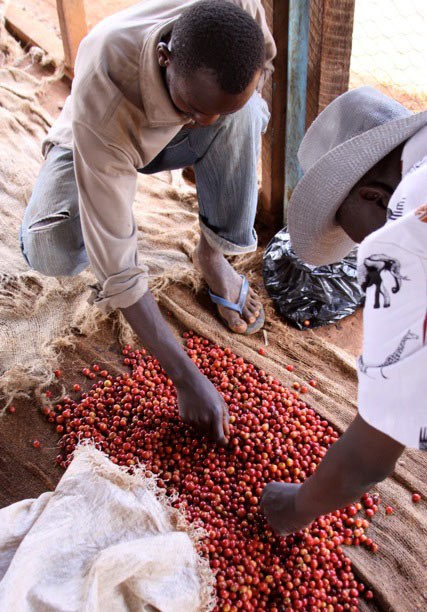
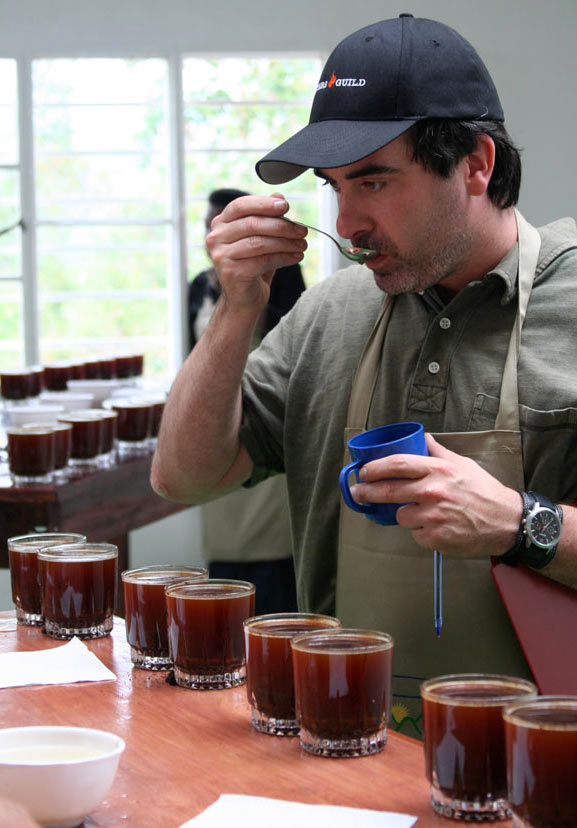
What inspires you to keep going?
The goal that I have is to keep innovating with what we are doing. Coffee has a long way to go. For us and for me personally that’s the motivation. There is nothing else we consume that requires so much effort. The number of different people who need to take care of quality along the way is staggering. It’s like a relay race. The beans have to go through all of the steps at the farm, it takes four years from the time you put a seed in the ground to be able to harvest the cherry, then de-pulp them, ferment them, wash them, dry them, sort them bean by bean, then they get roasted [and undergo] a complex set of chemical changes. People think coffee is a simple thing, but there are close to 800 organic compounds in coffee, that contributes to flavor and aroma. That makes it the world’s most complex beverage.












